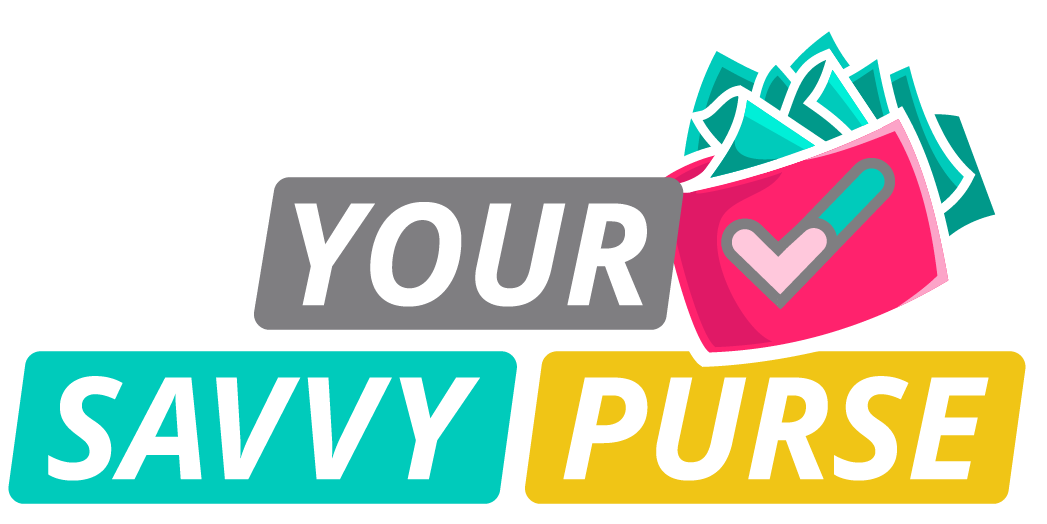We’re letting you know that this post contains sponsored links which Your Savvy Purse receives compensation for, which may impact their order of appearance.
Let’s face it: The holiday season, while filled with joy, can be financially draining. From buying gifts and hosting dinners to last-minute travel and spontaneous purchases, it’s easy to find yourself spending more than you intended. By the time January rolls around, many of us are left with a sense of financial overwhelm—and perhaps a credit card bill that feels a little too hefty.
If you’re feeling the post-holiday financial hangover, you’re not alone. But don’t worry—there’s a way to regain control and get back on track. January is the perfect time to hit the reset button and rebuild your finances with clarity and confidence. It’s all about taking a few mindful steps to recover, refocus, and reorganize.
Here’s how to get back on track financially in January after the holiday season:
1. Take a Deep Breath and Assess the Damage
The first step is to acknowledge what’s going on. It can be tempting to avoid checking your bank balance or credit card statements because you know they’re not pretty, but facing the facts is the only way forward.
How to do it:
- Review your spending: Look over all your holiday-related expenses, including gifts, travel, food, and any other extra purchases. Don’t just focus on the big-ticket items—small purchases can add up quickly.
- Check your credit card balances: Make a note of how much you owe and what the interest rates are. Knowing exactly where you stand will help you plan your next steps.
- Track your current savings: See how much you have left in your emergency fund, if applicable. Knowing what resources are available to you will help guide your recovery strategy.
Once you’ve assessed where you stand financially, it will be much easier to set realistic goals for the month ahead. The key is to be honest with yourself without judgment. The holidays are a time for generosity and celebration—sometimes that means spending more than we’d planned. Now, it’s about how you can adjust and recover.
2. Create a Realistic January Budget
After the whirlwind of December, it’s easy to let your finances drift, but a well-structured budget is your best tool for getting back on track. A budget helps you regain control by clearly allocating your income and prioritizing your spending for the month.
How to do it:
- Start with essentials: List your must-have expenses—things like rent/mortgage, utilities, groceries, transportation, and insurance. Make sure you’ve got these basics covered first.
- Cut back on non-essentials: Now that the holidays are over, take a hard look at what you can trim from your discretionary spending (e.g., dining out, entertainment, or shopping). January is a great time to take a break from impulse purchases and rein in any spending that isn’t necessary.
- Set a savings goal: Even if it’s a small amount, try to build up your savings again. Aim to put aside at least a percentage of your income into an emergency fund or savings account to avoid feeling financially stretched next holiday season.
There are plenty of budget-friendly tools and apps that can help you track your spending and stick to your goals. Consider using apps like Mint, YNAB (You Need a Budget), or even simple spreadsheets to track your progress throughout the month.
3. Tackle Holiday Debt Strategically
If your credit card balances have grown because of holiday spending, don’t panic—strategic debt management can help you pay it off in a manageable way. The goal here is to create a debt repayment plan that allows you to pay off your bills without feeling financially strained.
How to do it:
- List all your debts: Write down each credit card or loan, along with the balance, interest rate, and minimum payment. This will give you a clear picture of what you owe.
- Consider the debt snowball or avalanche method:
- Debt Snowball: Pay off the smallest debt first while making minimum payments on the others. Once that’s paid off, move on to the next smallest balance. This method can feel motivating as you check off debts quickly.
- Debt Avalanche: Focus on paying off the debt with the highest interest rate first. This will save you more money on interest over time.
- Refinance or consolidate if necessary: If you have significant debt, look into options like consolidating your credit card debt into a lower-interest loan or using a balance transfer card with a 0% APR intro offer. Just make sure to pay it off before the introductory period ends to avoid interest charges.
Remember, the goal is to stay consistent and avoid adding to the debt. If possible, try to only use your credit cards for emergencies or purchases you can pay off immediately.
4. Cancel Unused Subscriptions and Recurring Charges
The new year is the perfect time to audit your recurring expenses. Many of us forget about subscriptions we’ve signed up for throughout the year—streaming services, monthly memberships, or automatic product deliveries. These charges can add up, especially after the holidays.
How to do it:
- Review your subscriptions: Go through your bank or credit card statements and make a list of all your recurring charges. This includes subscriptions for everything from fitness apps to magazine subscriptions to premium services you don’t use.
- Cancel what you don’t need: If you’re not using a service regularly or it no longer serves you, cancel it. You’d be surprised at how many small charges slip through the cracks.
- Consider downgrading: If you don’t want to cancel a service altogether, look for cheaper options or plan tiers. For example, many streaming services offer lower-cost plans with ads, or gym memberships have more affordable packages.
This can free up some extra cash each month, which you can redirect toward savings or paying down debt.
5. Set Financial Goals for 2025
Now that January is here, it’s time to think about your financial future. Set clear goals for 2025, so you’re ready to hit the ground running when the new year begins.
How to do it:
- Create a savings target: Whether it’s for an emergency fund, a down payment on a home, or just general savings, having a goal will keep you motivated.
- Plan for big expenses: If you know you’ll have significant costs in 2025 (e.g., vacations, home improvements, or major life events), start budgeting for them now.
- Build better money habits: Consider using the new year as an opportunity to improve your financial literacy and habits. You might read a finance book, take an online course, or even set a personal challenge (like no-spend months or saving a certain percentage of income).
Setting financial goals doesn’t mean you need to have it all figured out right away, but it’s about giving yourself direction and focusing on making progress over time.
6. Start Thinking About Next Holiday Season
It may seem far off, but now is a great time to start planning for next year’s holidays. By getting ahead of the game, you can ease the financial burden when the holidays come around again.
How to do it:
- Start a holiday savings fund: Open a separate savings account or use a budgeting app to set aside money throughout the year for next year’s holiday expenses.
- Set a gift-buying strategy: Consider setting aside small amounts each month for gifts, so you aren’t overwhelmed by last-minute purchases.
- Plan ahead for travel: If you’re planning to travel next holiday season, start booking early to save on flights or accommodation.
The Bottom Line
The holidays may be over, but your financial recovery doesn’t have to be complicated. By reflecting on your expenses, sticking to a budget, tackling your debt, and setting proactive goals, you can bounce back from any holiday spending stress and start the year with a fresh financial perspective.
Remember: financial recovery takes time and discipline, but with a clear plan, you’ll be back on track in no time. Here’s to a successful, financially mindful year ahead!



